Caring for one’s teeth is incredibly important and oral hygiene tends to be overlooked, but wrongfully so. Proper oral hygiene can improve a person’s lifestyle to great extents and preventive dentistry will aid you by making sure serious complications don’t appear.Preventive dentistry starts buy brushing your teeth on a daily basis, but it goes a long way from there. On our website, we cover preventive dentistry categories in detail.
ORAL EXAMS - DIGITAL X-RAYS - CANCER SCREENING - PERIODONTAL CARE - CLEANING - FLUORIDE TREATMENTS - DENTAL SEALANTS - SPORTS NIGHT GUARD
ORAL EXAMS
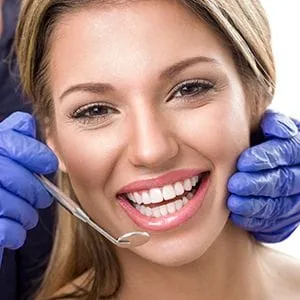
An oral exam is how your dentist or hygienist will check your teeth for cavities. Your dental professional is trained to identify other health problems such as gum disease and inflammation or bone loss. Examinations such as these are an important part of oral health care and preventative maintenance.
During a dental examination, general condition of the teeth and oral structures are checked and verified. The teeth are checked for cavities and calculus deposits. Long term dental goals are set and plans of action are determined.
Generally, new x-rays are done during these bi-annual examinations. This is how the dentist will find hidden decay that may be between the teeth and verify the condition of the teeth and bone. It is usually necessary to obtain an x-ray to find early signs of disease. It is usually less costly and more comfortable to prevent an issue than to correct one neglected.
Another important part of a dental oral examination is the training and instructions given by your dental professional. This instruction includes dental hygiene habits and proper brushing and flossing methods. He can advise you on the proper tools to use, and what not to use. He can tell you the dangers of certain foods to the teeth and the dangers of certain over the counter products. He will also give you an opportunity to ask questions about your oral health. If you are experiencing dry mouth, bad breath, or pain these are issues you should discuss together.
Regular check-ups are critical to assess and address oral health problems early. As with all health issues, early treatment prevents what could be future painful and expensive treatments. Dental decay and disease will not cure itself. It must be treated and will progressively worsen causing health issues and possibly tooth loss.
DIGITAL X-RAYS
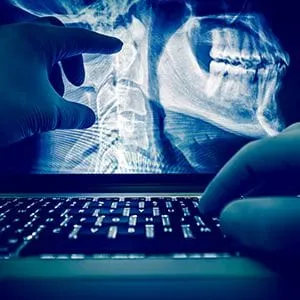
Using the most advanced dental technology possible is just as important as staying up-to-date on the latest treatment techniques. Because our practice is dedicated to providing you with the safest and most convenient treatment options available, we utilize advanced digital X-ray technology in our office.
Digital X-rays provide several advanced imaging options, designed to save time, provide clearer dental photos, and expose patients to less radiation than with traditional X-ray technology.
Our practice is focused on making your dental experience as comfortable as possible. At your next appointment, we'll be happy to answer any questions you may have.
CANCER SCREENING
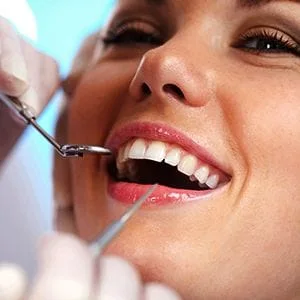
Cancer is a modern problem that keeps on affecting our society. Just like other parts of the body, it is also possible to have mouth cancer and as such, it is important to check for it through oral cancer screening.
This is an examination that is performed by a dentist to analyze the mouth looking for signs of cancer. The goal of oral cancer screening is to search for signs of mouth cancer early on so that it is still curable. Most dentists will perform such an examination on routine visits.
Some people have higher risks of mouth cancer. People who smoke, people who drink a lot of alcohol and people who have had significant sun exposure are all at risk of getting either mouth or lip cancer.
A lot of people have sores in their mouths and as such, oral cancer screening is likely to lead to additional tests as most of these sores are likely to not be cancerous at all. In order to determine which ones are cancerous and which ones aren’t, additional testing is required.
Moreover, oral cancer screening can fail to identify some forms of mouth cancer. Just by looking at the mouth it is really hard to identify strange cells and as such, it is possible that some forms of mouth cancer go unnoticed.
Oral cancer screening itself is rather simple. The dentist is simply going to look at the inside of your mouth and check for sores and red or white patches. The dentist is also going to be feeling the tissues in your mouth to check for abnormalities.
The exam itself requires no specific preparation and depending on the results there will either be a follow-up visit to the dentist so that he can check the development of any abnormal area he might have found, or a biopsy to identify whether or not some cells are cancerous.
PERIODONTAL CARE

Periodontal care is what is needed to maintain the gums and other structures that hold teeth together. Periodontal means pertaining to the gums and other tissues that help to support the teeth. Without proper Periodontal Care it will provide an avenue for bacteria and other elements to invade the gums and cause many problems.
It is the dentist that can help with Periodontal Care. A large percentage of people over thirty have some kind of Periodontal Disease. As people grow older this can become an increasing problem. Good periodontal Care by the dentist can keep the problem of Periodontal Disease from happening.
Dentists provide periodontal care so they can help people from developing other complications. They offer lots of periodontal services to help in the care of patients with Periodontal Disease. Gingivitis is the early stage of this disease of the gums. Gingivitis affects the gums by developing an infection in the area. The gums become swollen and red and can even resulting in bleeding. It can even provide a worst case scenario by having teeth fall out.
Bacteria is the cause of this infection that can cause this irritation to the gums. This buildup of bacteria on the teeth causes something called plaque. This buildup of plaque on the teeth is what causes it to affect the gums and surrounding tissue. This buildup of plaque then becomes harder and it becomes tartar. The spread of it to the gums can then occur. Only a Dentist can help you remove the tartar. This removal of the tartar by the Dentist can stop the spread of Periodontal Disease.
Prevention of the disease can be done by regular brushing and also having the Dentist provide regular cleanings. Make sure to see the Dentist at least once a year for regular checkups and routine cleanings to keep this bacteria buildup from happening. Good Periodontal care can stop all this from happening.
DENTAL CLEANING
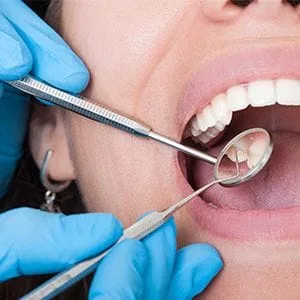
Some people go years brushing their teeth without visiting their dentist to check on their oral health. They don’t understand that visiting the dentist is just as important as scheduling visits with their primary care physician.
While brushing is a normal part of oral maintenance, daily care of the teeth and gums must also include flossing. Regularly practicing these two steps will help to keep them in tip top shape. This routine will keep plaque buildup at bay. Practicing good oral hygiene also includes scheduling regular visits to the dentist.
Plaque buildup is characterized initially by yellow stains on the teeth. Plaque is caused by deposits of food particles which, if not brushed away properly, leads to tartar. Flossing should always follow brushing after every meal to alleviate the onset of plaque.Neglecting these steps could cause painful inflammation of the gums, tooth decay and periodontal disease. This malady can have devastating effects, including loss of bone structure and gingivitis.Professional dental cleanings works well with the daily care taken at home, but only needs to be done every six to twelve months, unless the dentist recommends more frequent visits. After each visit the dentist will thoroughly check the patient’s oral history to ensure the health of their teeth and gums is not at risk.
During the dental cleaning visit, a dental hygienist will likely take the lead in cleaning the teeth. They will remove tartar and plaque buildup followed by polishing the teeth’s surface, before finishing with a fluoride treatment. Patients not regularly attending a dentist should seek one to ensure the maintenance of their oral health. Although some people fear visiting dentists, they are trained to calm your fears, especially if you forewarn them in advance.
Strong and healthy teeth also aid in proper digestion. However, not caring properly for them will lead to complications that are difficult to overcome. By following simple guidelines and regular dental cleanings, you can ensure the longevity of your teeth.
FLOURIDE TREATMENTS
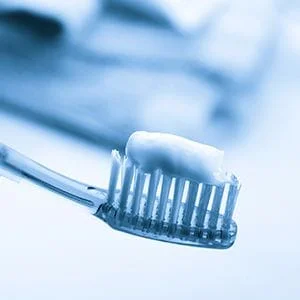
The outermost part of the tooth is known as the enamel. It is made from tightly packed mineral crystals. The level of minerals in the tooth goes up and down every day, known as demineralization and remineralization. Fluoride treatments help to both speed up remineralization and to protect the current enamel of your teeth. It is also used to prevent acid build up on teeth that can cause tooth decay.
It is especially important to get fluoride treatments if you have a history of tooth problems, such as cavities, poor diet habits that affect teeth, if you smoke or chew tobacco, if you drink more than one alcoholic drink a day, or if you don’t see a dentist regularly.
Fluoride treatments are one of the healthiest and easiest things you can do for your teeth to give you both a healthy smile and strong teeth. Fluoride is a naturally occurring mineral that helps to strengthen teeth, reduces the chances of tooth decay, and has also been proven to reverse tooth decay in very early stages.
For some, fluoride treatments have also been shown to reduce tooth sensitivity. Fluoride treatments aren’t just for children; even adults can benefit from these treatments. It is especially important to receive fluoride treatments if you have tooth troubles like the exposure of roots or receding gum lines.
Fluoride treatments are given after your dental cleaning has been done as this is the time when the fluoride is most effective and the maximum benefits are derived from the treatment.
Fluoride treatments are safe and effective when used properly. It is recommended that you do not eat, drink, smoke or otherwise consume anything for 30-60 minutes after your treatment to allow the maximum effectiveness of your treatment. Treatments are generally done every six months, but can be done as needed or recommended by your dentist.
SEALANT

Dental sealant consists of a thin coating of plastic that is applied to the surface of (usually the back teeth) to help prevent tooth decay. The sealant bonds with the format of the teeth itself to protect it, acting as a shield that protects it from tooth decay.
Proper oral hygiene is incredibly effective at protecting the surfaces of teeth in the front of the mouth, but it isn’t as effective at reaching the back teeth due to their own texture and positioning. Sealants are effective at protecting these by sealing out harmful agents.
The best candidates for dental sealants are usually children and teenagers as they are likelier to develop tooth decay in the depressions of their back teeth. Adults without decay or other alterations to their teeth are also great candidates to benefit from sealants.
Typically, the best choice is to apply sealants to permanent molars of children as soon as they come in so that they will benefit from them right from the beginning. These sealants are usually going to last until their teenage years, protecting them from harmful agents for about 6 to 8 years.
It is fairly easy for a dentist to apply sealant to a tooth and the process should only take a few minutes to complete. After the tooth is thoroughly cleaned, it is then dried and has an acid solution applied to it to help the sealant bond to the tooth. Afterwards, the tooth is rinsed and dried, and finally the sealant is painted to the tooth where it bonds and hardens.
Usually, sealants can protect teeth from decay for up to 10 years, but their expectancy depends on the pressure applied to the teeth. They need to regularly be checked by a dentist as it might chip or get damaged from natural wear and tear. A dentist can replace sealants if necessary.
NIGHT GUARD
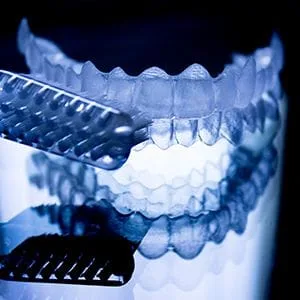
An estimated 15% of Americans, both children and adults, grind their teeth when they sleep. The grinding of teeth is known as Bruxism. It includes gnashing and clenching of the teeth as well. Most people who have Bruxism don’t know that they grind or clench during the day or night. People who suffer from Bruxism at night are also more prone to sleep conditions like snoring or apnea. Symptoms of Bruxism include, but are not limited to, jaw pain, tooth pain, headaches, ear pain and muscle pain around the jaw and ear. These symptoms are known as TMJ or Temporomandibular Joint problem.
The number one recommended treatment for Bruxism is with a dental guard. Dental guards are created from hard but pliable plastics that are custom made for your mouth by using a mold of your teeth to form the guard. Dental guards create a cushioning between the upper and lower set of teeth to absorb the grinding, gnashing, clenching or biting that you do in your sleep.
Most dental guards are comfortable to wear for long periods of time, do not cause discomfort and are easily cleaned. It should be noted that over wearing or guards that are not properly fitted can cause sores, tooth damage, gun damage, or other complications.
If your guard is not fitting properly, a new one should be made.
While a dental guard is intended to prevent damage to your teeth, it is not a cure all. For most people, there are underlying causes of Bruxism that need to be treated other than by seeing a dentist. Dental guards work best when accompanied by other treatments to help prevent the actual grinding and biting that occurs while you sleep. It is best to talk to your doctor in conjunction with your dentist to provide you with the best plan of care for your teeth and your TMJ complications.
